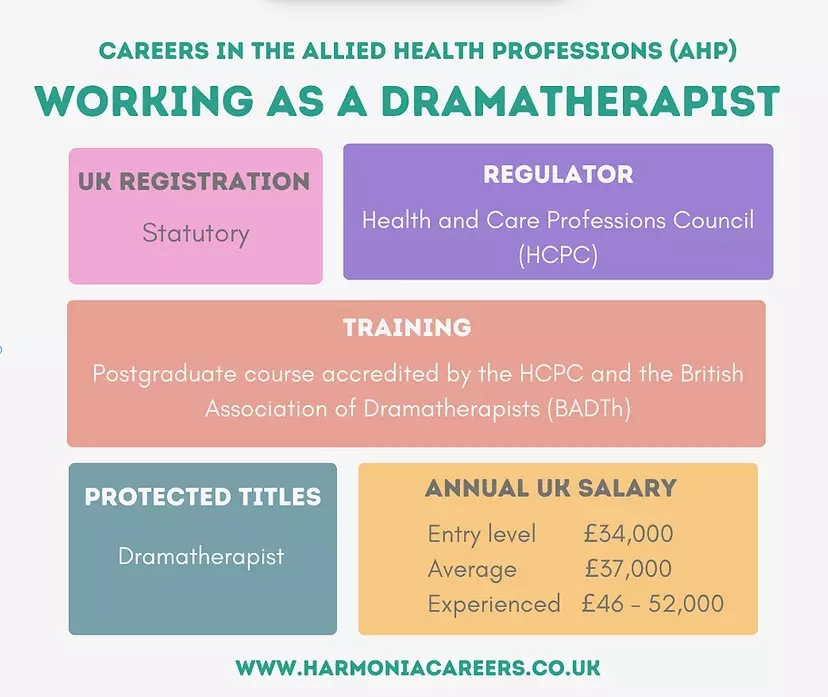
3 Apr 2025 ● Harmonia Careers
How to become a Dramatherapist
What is dramatherapy?
Dramatherapy is a form of therapy that uses creative arts, particularly drama and performance, to facilitate personal growth, emotional healing, and psychological wellbeing. This therapeutic approach harnesses the power of storytelling, role play, and improvisation to help individuals explore their thoughts, feelings, and experiences in a safe and supportive environment.
Participants are encouraged to embody characters, enact scenarios, and engage in various dramatic techniques, which can lead to new insights and perspectives on their personal challenges. This method is particularly beneficial for those who may find it difficult to articulate their feelings through traditional verbal communication.
Dramatherapy can be conducted in both individual and group settings, catering to a wide range of age groups and backgrounds. It is often employed in therapeutic contexts, such as mental health treatment, rehabilitation programmes, and educational settings.

How to become a qualified Dramatherapist
Becoming a qualified dramatherapist involves a blend of education, practical experience, and personal development.
Dramatherapy is not only about working with clients but also about understanding yourself as a person and as apractitioner. Aspiring dramatherapists should engage in their own personal development, which may include participating in workshops, therapy, and reflective practices. This self-awareness is crucial, as it enables therapists to recognise their own biases and emotional responses, ensuring they provide a safe and effective therapeutic environment for their clients.
1. Training
You will need to complete a full or part-time Masters degree in dramatherapy approved by the British Association of Dramatherapy (BADTh)
Entry requirements include a degree-level qualification in drama or in a psychological health related subject, or another relevant professional qualification, such as nursing, teaching, occupational therapy or social work.
You may be accepted onto a course without a degree or professional qualification if you have at least one year’s work experience with a relevant client group.
2. Regulation
'Dramatherapist' is a protected title under UK law and it is illegal to use this title without registration.
To practice as a dramatherapist in the UK, you must be registered with the Health and Care Professions Council (HCPC), which holds a public register with theProfessional Standards Authority (PSA).
3. Professional Registration
In addition to registering with the HCPC, you may also want to join a professional membership body such as the British Association of Dramatherapy (BADTh) for accreditation and support with professional development, networking, support, and access to resources.

Where do dramatherapists work?
Mental health facilities
Within the NHS and private clinics helping individuals experiencing a range of psychological issues
Educational settings
Providing support for students dealing with social anxiety, bullying, or trauma
Rehabilitation
In hospitals and rehab centres, assisting patients recovering from physical injuries or surgeries
Community centres and non-profit organisations
Focusing on marginalised or at-risk populations, often to address social issues such as addiction, homelessness, or violence.
Corporate environments
Facilitating team-building workshops and leadership training sessions.
Final thoughts
The profession of dramatherapy is continually evolving, with increasing recognition in clinical settings, schools, and community programmes. This growth reflects a broader understanding of the importance of holistic approaches to mental health, emphasising the need for innovative therapeutic practices that cater to the diverse needs of individuals.
Combining empathy, creativity, and psychological insight, this is a rich and fulfilling career path dedicated to fostering healing and personal growth through the transformative power of drama.



